Relationships seem almost effortless as they begin, but as days turn into months and the honeymoon phase begins to fade out, the outright reality of the relationship begins to present itself. That’s when healthy relationship dynamics can help you sail through and work on strengthening your bond. Understanding the dynamics of a relationship will bring you closer to your partner.
Pearl, a 25-year-old software engineer, has been dating her Youtuber girlfriend, Tami, for almost two years. Initially, they shared cute relationship dynamics, but with time, Pearl has begun to realize that Tami and she are polar opposites and have distinct techniques of dealing with situations that often put them at loggerheads. Pearl dislikes Tami’s overall laid-back attitude while Tami feels Pearl is a control freak who takes things too seriously.
This situation is prevalent in many relationships, especially when the people dating each other are fundamentally different from each other. That’s where an understanding of different relationship dynamics and how they influence the decisions we make in a relationship is vital.
To help you develop that understanding, we spoke to counseling psychologist Nishmin Marshall, former director at SAATH: Suicide Prevention Centre and a consultant at BM Institute of Mental Health, about the dynamics of a relationship, how they influence relationships, and if they can transform our relationships.
What Is Meant By Relationship Dynamics?
Table of Contents
Relationship dynamics are a series of behaviors that people display during interactions, communication, and how they react to various topics. Being aware of the dynamics in relationships empowers both partners. There can be unhealthy relationship dynamics and healthy ones depending upon people, their behaviors, love languages, trauma, triggers, and other prerequisites.
Watch our expert Ridhi Golechha explain the differences between healthy and unhealthy relationships and what you can strive to do here.
For more expert-backed insights, please subscribe to our YouTube channel. Click here
A 2021 study on relationship dynamics in adolescent romantic relationships revealed four profiles of romantic relationship dynamics:
- Balanced dynamic (51.0% of the sample): With balanced interactions, partners managed to establish an atmosphere of trust and respect and resolved their disagreements by using effective communication skills
- Hampered dynamic (8.3%): In hampered interactions, partners stood out by an inability to communicate, which led to several misunderstandings in the relationship. Despite close affective proximity, partners here were limited by their self-disclosure difficulties and lack of effective communication skills
- Entangled dynamic (20.8%): Partners with this dynamic resonate with a high dependence on one another, and a romanticized and idealized vision of their relationship, leading to many insecurities and powerlessness, resulting in conflict avoidance
- Rigid dynamic (13.5%): Partners relating to this dynamic appeared indifferent to the opinions and feelings of their partner and mobilized negotiation strategies that amplified conflicts and communication skills that led to abusive behaviors
The results provided significant insight into the identified profiles, guiding dating violence prevention efforts and programs and promoting harmonious romantic relationship dynamics.
10 Fundamentals Of Healthy Relationship Dynamics
Every relationship is unique, with varying needs, wants, interests, dislikes, and likes. Certain key factors that showcase growth for both the partners individually in their lives as well as the relationship and a way of compromise that helps both partners put their points forward without invalidating or disrespecting the other is what differentiates a healthy relationship from an unhealthy one.
A balanced dynamic helps create more fulfilling relationships and is sustained by values that help you enjoy a loving, respectful and safe relationship. “Being there for your partner through thick and thin, being yourself with your partner without any masks, being respectful and honest, and sharing the feeling of being equal are the cornerstones of healthy relationship dynamics,” says Nishmin.
Always strive to share a healthy relationship with your partner. Let’s take a close look at these elements with the following fundamentals of healthy dynamics of a relationship that can help transform your love life:
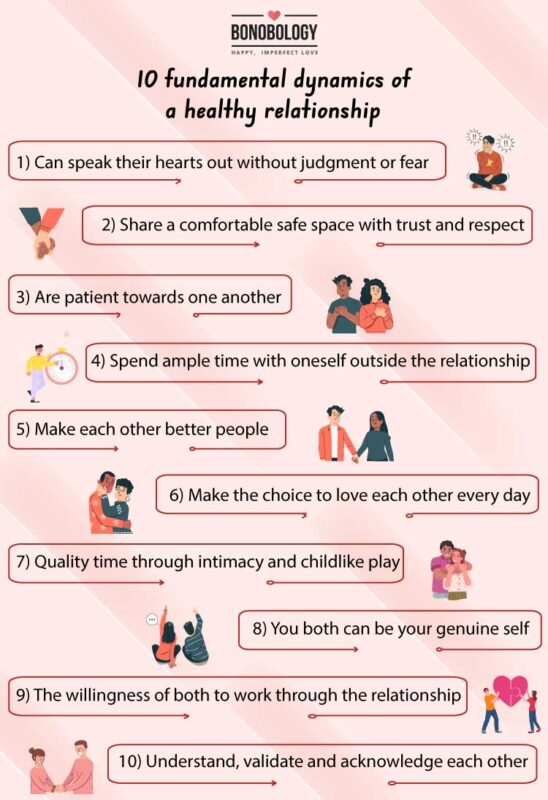
1. Honest and open communication
It’s important to have a relationship where you can talk about anything with your partner without fearing any harsh reactions or judgments. If there’s something that you want from your partner, you should be able to ask for it clearly.
Likewise, your partner should have the space to voice their opinions freely. A healthy discussion that’s gentle and allows both partners to speak their hearts out makes way for a beautiful relationship dynamic.
2. Physical and emotional intimacy
Intimacy is not all about sex as usually presumed but rather about romantic relationship dynamics that involve the closeness you share with a person emotionally and physically. Being able to understand what your partner desires on any given day may be hard to figure out.
Yet having the empathy to directly ask them what’s bothering them and if they want to talk it out or if they require space are beautiful examples of intimacy. Here’s how you can fall in love again: cuddling, caressing, light touches, and hugs communicate our love for our partners. Being comfortable in reaching a place in your relationship where intimacy doesn’t equal sex is an example of a healthy bond. However, at the same time, there can be a mutual sexual desire for each other as well as making a more intimate relationship.
Related Reading: 8 Types Of Intimacy In A Relationship
3. Trust and faith
Trust plays a huge role in the upkeep of a relationship. This is a building block that lays down the foundation of a stronger relationship. Without faith and belief in each other, unhealthy relationship dynamics take hold.
If romantic partners have hurt you in the past, it can be a challenge to break down your walls and do the utmost to build trust in your relationship. Fear exists to keep us safe but incessant voices inside us that scare us from trusting anyone can be wrong. You’re never going to know unless you give things a shot and try.
4. Conflict resolution
Different relationship dynamics involve a diverse number of ways to build a better relationship with your partner. A healthy exercise for the success of a long-term relationship is learning how to fight well. Fighting is an essential part of any relationship, what takes your relationship to the next level is fighting productively.
Yes, it’s possible to have an argument with someone without hateful words, mocking tones, and an intent to hurt. To build a healthy relationship dynamic, you need to learn the ins and outs of your partner’s triggers, understanding, and what they absolutely can’t stand. It’s not the fight, it’s how you fight that decides how far your relationship will go.
“It’s all about being empathetic in the relationship and also learning about your partner’s mood patterns, love language, acknowledging and validating their emotions as well as understanding why they can’t stand certain things,” says Nishmin. Both partners need to learn how to compromise for the other, not out of obligation or pressure but because you love this person and you want to do it for them.
Related Reading: The First Fight In A Relationship – What To Expect
5. Thinking like a team
The mentality of me VS you can be quite prevalent in relationships. Yet what most people forget is that you cannot get the dynamics of a relationship right until you begin to see yourselves as a team of two.
Partners should work on their behaviors, individually, push each other to be the best versions of themselves as well as do the work needed for building their relationship.

6. Individual identity
After entering a relationship, most people forget their individual identities. Yes, your identity may have shifted yet totally disappearing into the role of a partner can make your relationship toxic. Meeting your individual needs is every human being’s right even if you’re in a relationship, a marriage, or are caught in the humdrum of raising a family.
Your needs don’t magically vanish when you enter a relationship. Individual identity is something that can never be compromised in a relationship. Take that self-care day, meet your friend group, take a solo trip, or move continents if it is your dream. Nothing should stand in the way of your personal goals rather your partner should support and stand by your decisions. It is your job to build a dynamic relationship with yourself here that fulfills your needs.
7. Playfulness
A cute relationship dynamic can be like a breath of fresh air in our gray world. Yet, we often take the fun aspects of life for granted. We prefer reading our daily news highlights about how the world is becoming scarier by the day rather than living our best lives by taking a quiet walk in a park or simply indulging in a dance-off with our significant others.
Playfulness may seem silly yet the inner child in us thrives on these light-hearted moments. Sharing laughter is the hallmark of a healthy relationship dynamic and helps make life easier. If you can find humor in the worst of situations and find a way to share a laugh, the relationship is bound to grow deeper. Healthy playful banter is a great flirting tool, not necessarily romantic or sexual in nature
8. Time for yourself
Not spending healthy time with ourselves because of our “people-pleasing” tendencies can do more harm than good to our relationship. We may, out of love, give all our time to our partners but it can prove to be a double-edged sword. Making time to nurture our relationships at the cost of time for self-care can lead to subconscious resentment toward our partner, so ultimately it’s an unhealthy relationship dynamic.
“There is no doubt that your partner makes you feel good about yourself, yet it is important to give each other space to do things independently and be supportive of your respective lifestyles,” says Nishmin.
Building a healthier relationship requires you to take time for self-care, taking some time out for yourself is essential to becoming a more centered, well-rounded version of yourself, which will only make you a better partner in your relationship. At the same time, you won’t rely on your significant other to meet all your needs, which, in turn, will prevent unrealistic expectations and a stifling dynamic from taking hold.

9. Bringing out the best in each other
Your relationship goal should surely involve motivating your partner to become the best version of themself. And if being with your partner helps induce good habits in your life, you might be the best fit together. But if only one partner is doing all the work, that isn’t fair either and the relationship is bound to go downhill. There is no shortcut to letting go of unhealthy relationship dynamics and moving into a healthier space. If you want your relationship to last, you have to work toward bringing the best in each other.
10. Being authentically yourself
Pretending to be someone else will not work in a relationship for too long. If you cannot be the raw you, the relationship isn’t real. If you and your partner do not like each other for who you really are, it can become impossible to stick together. You have to be honest with yourself and in the relationship to take it ahead.
This does not mean that you should stubbornly hold on to the versions of yourselves that you were when you first came together. Growth, evolution, and change are inevitable parts of the human journey. And they’re what allow you to foster effective relationship dynamics as you grow as a couple. What’s important is always to be your most authentic version with your partner.
5 Examples Of Healthy Relationship Dynamics
A study published by Cambridge University Press found three broad thematic areas: marital relations and satisfaction, changes in emotional state or physical health, and the interplay between marital quality and well-being. The issues found to affect marital relations and satisfaction in late life included equality of roles, having adequate communication, and transitions to living apart.
There is strong evidence for couple concordance in depression, that the quality of marital relationships affects health, longevity, and recovery from illness, and that ill-health impacts the marriage itself. The research also suggests important gender differences in the impact of marital dynamics on health.
Nishmin tells us how early conditioning governs the relationship dynamics we learn and follow in our life. However, it is not impossible to break existing patterns and replace them with healthier ones. If that’s what you’ve been striving for, these are examples of dynamic relationships that are healthy for both partners and can lend direction to your endeavors:
Related Reading: 9 Signs You Have Serious Communication Issues In Your Relationship
1. Seeing things from the other’s POV
“For your love and bond to grow, you have to care for the other person authentically, you have to feel what they are feeling, try to understand their mental state, and have the will to stick with your partner in the long run. It is important for both partners to want the relationship and learn to be tolerant and patient with each other without giving into fear or ego,” says Nishmin.
It is essential to have the intent to step into your partner’s shoes and see things from their perspective. Developing empathy in your relationship will only help it grow. There are multiple perceptions of a single event, it is important to try to understand where the other person is coming from. This will surely help with better conflict resolution as well.

2. Being an avid listener
“You cannot be stubborn and keep thinking I am right, I will not change, or I can’t get along. This can only happen when mutual care and concern are prevalent between you two. You don’t have to always agree with each other to be alongside one another in a relationship,” says Nishmin.
To communicate better in a relationship, it is equally important to be a good listener. It is ideal to listen keeping in mind the other person and not just projecting your own thoughts and process. Learning to just listen with complete focus and attention is all you have to do to establish healthy relationship dynamics.
3. Not avoiding conflict
Learning to fight fair is a tool that’ll take your relationship far. This ability comes from an understanding of what your partner feels at a fundamental level and openly communicating your likes, dislikes, and wants. Do not go hysterical or shut down completely, take some time if needed, but remember always it is not you VS me, you both are a team.
Related Reading: 12 Reasons Arguments In A Relationship Can Be Healthy
4. Being patient and supportive
Everyone has their own pace, their own capacity in which they grow and heal. Learning to accept the differences yet moving through by being patient and supportive will surely bring you closer to your partner. It is also important to provide a safe space where you both can be vulnerable without feeling judged. To build a stronger relationship, focus on bonding with your partner on a daily basis.
5. Validate and acknowledge
“For a better relationship, you can always learn to be kind, have an appreciation for small things, and bring out the best in your partner,” says Nishmin. Just being seen and heard can have a massive influence on one’s self-esteem. Mutual validation and acknowledgment help both partners feel much more aligned to their core goals as well as grateful for each other, thus deepening their bond.

How To Navigate Challenging Relationship Dynamics
Navigating through the rigorous waters of a relationship can be quite tough on partners. The dynamics partners share can either make or break the relationship. It is quite the challenge yet you’ve got what it takes!
In our relationships, we have all been through rough patches, be it due to the distance, the silent treatment, or brutal arguments. There are distinct ways to make sure that these rough patches don’t alter your relationship dynamics at a fundamental level. Here are 5 expert-backed tips on navigating challenging relationship dynamics:
- Good communication: Open communication provides a safe space for both partners to convey their emotions, suggestions, and ideas. Nishmin states, “Good communication is the base on which healthy relationship dynamics rest. If you can communicate to your partner that you haven’t been feeling all right, you both can work on solving the problem collectively.” Being mindful of your partner’s needs, thought process, as well as current mindset, helps foster healthy communication. Open communication is a primary sign of a healthy relationship, you can speak to each other about anything and everything!
- Expert help: When you feel stuck in a relationship, seeking professional help in form of couples’ therapy or relationship counseling can be immensely helpful. It helps you find a common ground for your ideas and feelings. Therapy can do wonders for your marriage as well as your life, offering guidance in unlearning, learning, jointly working on issues, and experiencing life together.
- Acceptance and transparency: If things are going south between partners, both need to accept the situation at hand. No amount of avoidance or temper tantrums can resolve it. Couples have to be as transparent as they can be with each other. The sooner you come to terms with the reality of the circumstance, the easier it is to find a practical solution for resolving your issues. Team up to work on the existing problem at hand rather than fighting each other
- Willingness for a future together: “You should have the will to stick with your partner in the long run. It is important for both partners to want the relationship and learn to be tolerant and patient without giving into fear or ego,” says Nishmin. If both partners want their companionship to flourish, both have to put in the effort required. Both must have the intent to want a future where they’ll share their lives
- A positive outlook: Positive thinking has numerous benefits for our minds and bodies. “Having an optimistic outlook on life — a general expectation that good things will happen — may help people live longer,” according to a new study from the Harvard T.H. Chan School of Public Health. Gratitude helps us realize how much we’ve been taking for granted in our lives. Focus on solutions rather than the problem, don’t let negative self-talk and overthinking blur your self-belief, and inculcate proactive habits to attract positivity in your life
Key Pointers
- Healthy relationship dynamics are behavior patterns formed over time that help deepen your bond with your partner
- The fundamental dynamics of a healthy relationship include trust, respect, patience, empathy, open communication, understanding, healthy individual self-care, being playful, and becoming better versions of yourselves
- In a relationship, it is important, to be honest, validate, acknowledge, be intimate physically and mentally as well as grow collectively and individually
- Navigating through the tough phases of a relationship that challenging dynamics create can be quite taxing. Taking the help of a counselor is a great way of taking things forward in your relationship
You cannot suffer alone or keep putting up walls, it is always better to share your burden with your loved ones or with a counselor that can help you move forward. Things can change, and people change, but the willingness from both sides to change must be present. This will surely help change the dynamic of a relationship.
FAQs
Yes, relationship dynamics can change for the better but only if both partners are willing to put in the work required and shift their behaviors as per the other’s needs. Changing relationship dynamics is a continuous journey in which you have to decide to be the best version of yourself for yourself and your partner every day. Yes, loving someone is a feeling but it is also a choice that you make every single day.
It is essential to work on relationship dynamics as they directly help us make our relationships better in all aspects of life. It is empowering to be aware of the know-how and whereabouts of your relationships, this only comes with a good sense of understanding of the relationship dynamics whether healthy or unhealthy that exist in your relationship so you can work around moving your relationship to a better place.
Your contribution does not constitute a charitable donation. It will allow Bonobology to continue bringing you new and up-to-date information in our pursuit of helping anyone in the world to learn how to do anything.





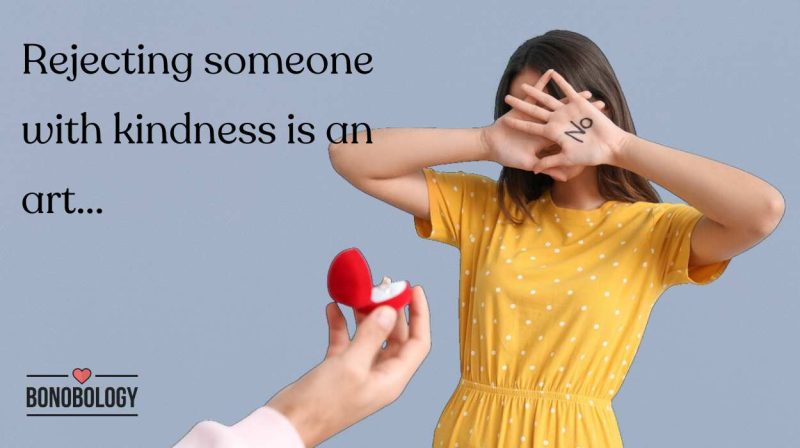
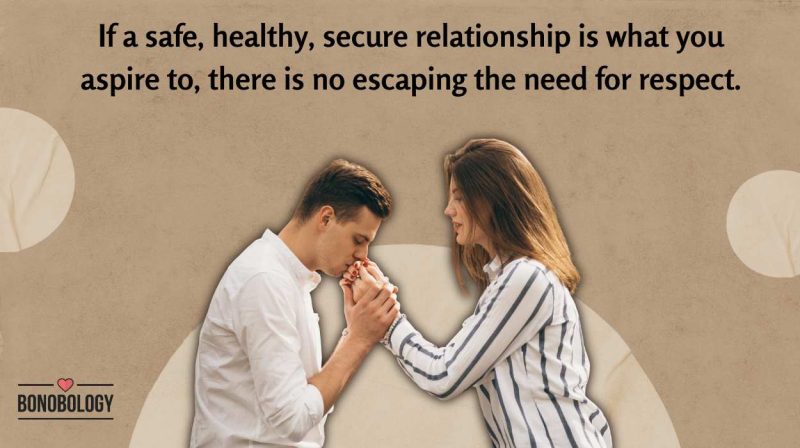

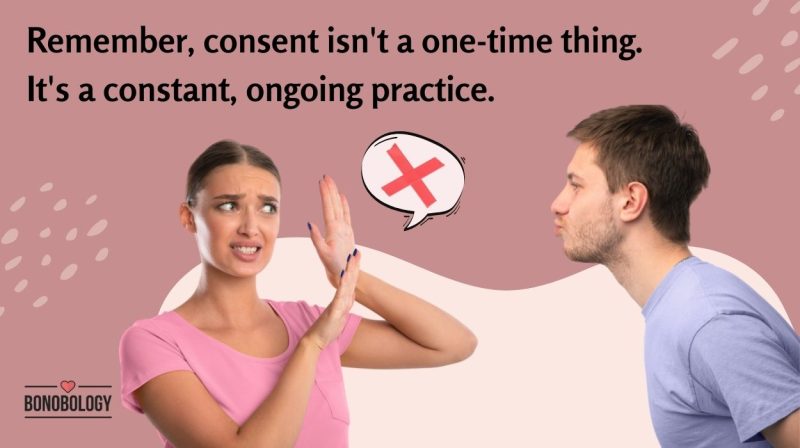

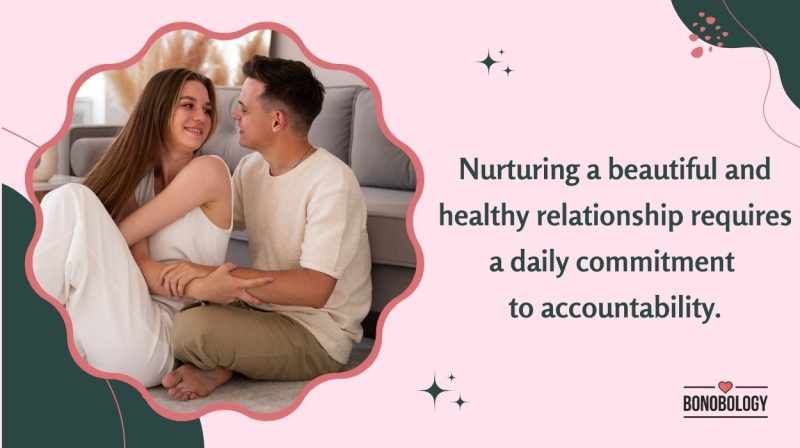
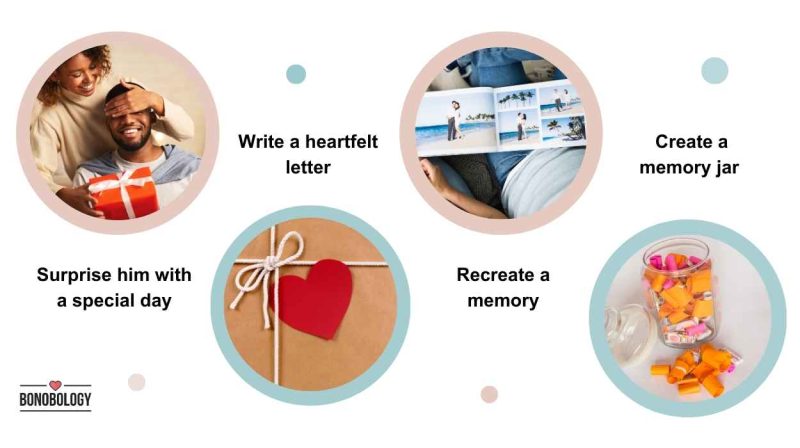
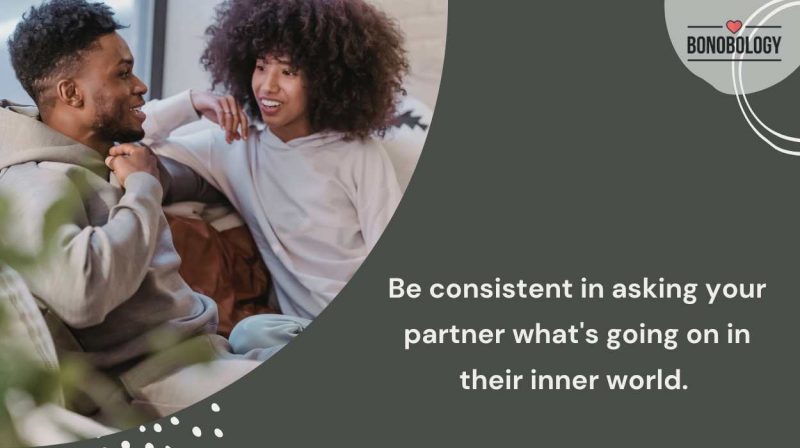

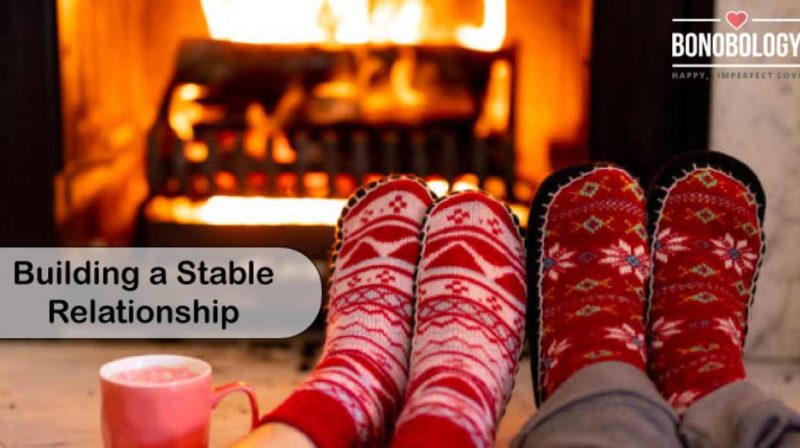


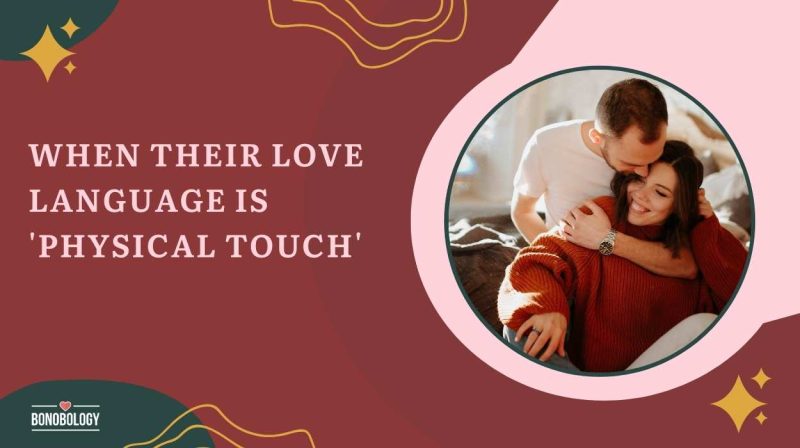
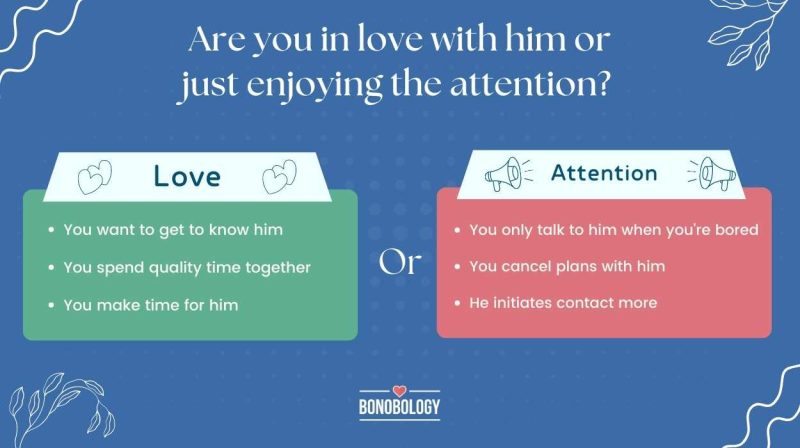
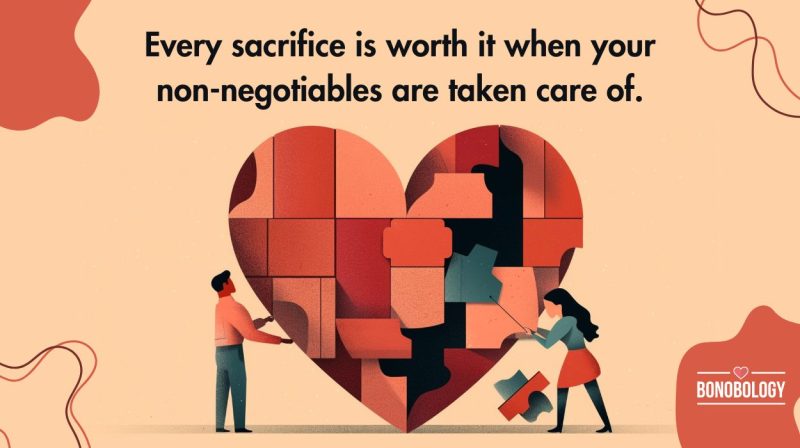
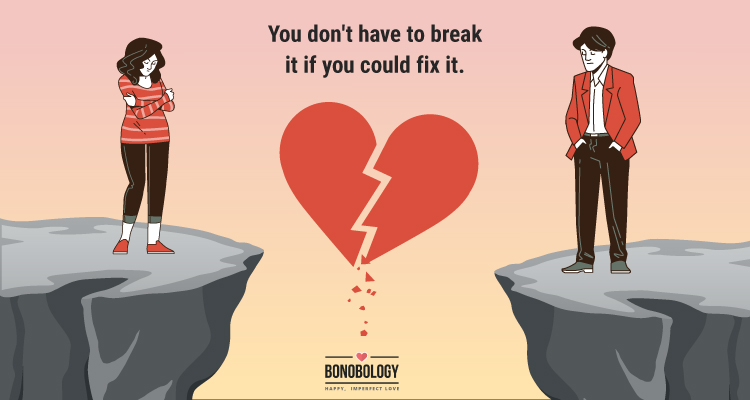
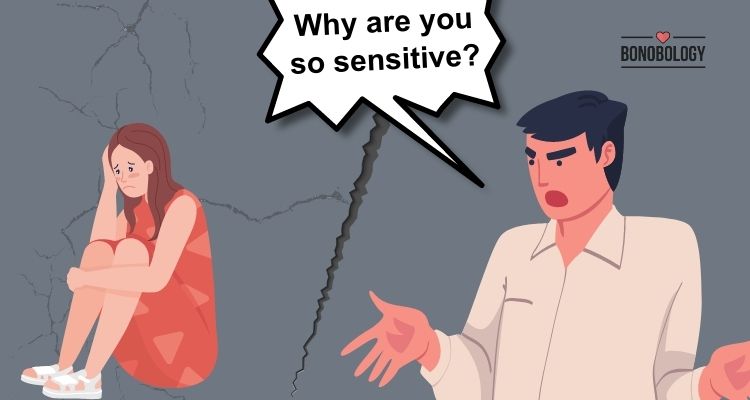

Featured
6 Tips for Helping Your Partner Quit Smoking in Their 50s
How He Treats You Is How He Feels About You — Is It True?
How To Let Someone Down Easy With Kindness And Grace — 13 Tips
How To Show Respect In A Relationship — 9 Ways
The Pitfalls Of Nice Guy Syndrome: How It Affects Relationships
Navigating The Complexities Of Consent In Modern Relationships
11 Ways To Deal With A Sexually Demanding Husband
Accountability In Relationships – Meaning, Importance, And Ways To Practice
How To Apologize To Your Boyfriend: 15 Ways
10 Thought-Provoking Relationship Check-In Questions for Deeper Connection
Is A Monogamous Relationship Right For You? 11 Questions To Help You Find Out
10 Signs You Are In A Truly Stable Relationship (Even If You Feel Otherwise)
7 Subtle Signs Your Partner is Quiet Quitting Your Relationship
Secure Relationships – What Are They And What Do They Look Like?
Physical Touch Love Language: What It Means With Examples
Do I Like Him Or The Attention? Ways To Find Out The Truth
17 Non-Negotiables In Relationships You Must Never Compromise On
15 Ways To Solve Relationship Problems Without Breaking Up
9 Common Narcissist Gaslighting Examples We Hope You Never Hear
The Most Important 7 Qualities Of A Healthy Relationship